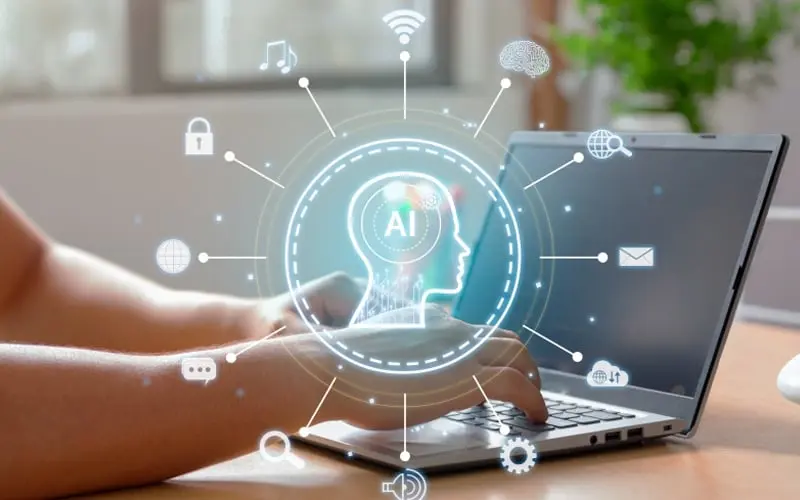Introduction
Artificial intelligence (AI) isn’t just a buzzword for tech enthusiasts or big corporations anymore—it’s a powerful tool that’s entering our daily lives in ways we might not even realize. From helping with household chores to improving our kids’ education, AI is all around us, making life a bit easier for parents juggling work, family, and endless to-do lists. In this post, we’ll explore some of the ways AI can benefit families, highlighting how it can actually be a parent’s secret helper!
1. Enhanced Learning and Tutoring Tools for Kids
AI has revolutionized education, making it easier for kids to access personalized learning experiences that cater to their individual needs. Apps like Khan Academy, Duolingo, and Prodigy use AI to adapt lessons based on how your child performs. For instance, if your child is struggling with multiplication, the app will offer additional exercises and step-by-step explanations. If they’re excelling, the content will become progressively more challenging.
AI-powered educational platforms can also provide instant feedback, which is crucial for a child’s learning process. This means parents don’t always have to be present to help with homework or explain complex concepts. These tools not only make learning more engaging for kids but also allow parents to monitor their child’s progress through reports and performance insights.

Bonus Tip for Parents:
Look into AI-driven storytelling apps that can read stories aloud with expression or even change the story’s path based on your child’s preferences. These can spark a love of reading and imagination!
2. Smart Home Helpers to Save Time
AI technology has made managing a busy household much simpler. Smart home devices like Amazon Alexa, Google Home, and Apple’s HomeKit are equipped with AI that can handle everyday tasks. You can set reminders, automate your grocery list, control home appliances, and even get recipe suggestions while cooking—all with voice commands.
Beyond convenience, some devices can “learn” your routines. For example, a smart thermostat can adjust the temperature based on your family’s daily schedule, saving on energy costs. Robotic vacuum cleaners, like the Roomba, use AI to navigate and clean your home efficiently, so you have one less chore to worry about.
Parent-Friendly Example:
Imagine you’re cooking dinner while helping your child with homework and getting ready for a family movie night. AI assistants can keep you organized by playing background music, setting a timer for dinner, and dimming the living room lights for movie time—all in one go.
3. Safety and Monitoring for Peace of Mind
AI-driven security systems have advanced to offer features that bring peace of mind to parents. AI-enabled cameras can differentiate between your pet moving across the living room and an actual potential intruder. They can alert you only when necessary, avoiding false alarms.
Baby monitors have also improved with AI features. Some can track your baby’s breathing patterns, detect changes in sleep behavior, or send alerts if something unusual happens. This technology helps parents rest a bit easier, knowing they’ll be alerted in case of any issues.
Additionally, parental control software now uses AI to keep kids safe online. These tools can monitor internet usage, block harmful content, and even detect signs of cyberbullying or dangerous behavior.
Practical Example for Parents:
For teens with smartphones, AI can help monitor screen time and suggest healthier usage patterns, ensuring they balance social media with schoolwork and other responsibilities.
4. Healthcare and Wellness for the Whole Family
AI has made significant advancements in healthcare, offering benefits that can directly impact families. Telemedicine, powered by AI, allows parents to consult with doctors quickly, sometimes even diagnosing symptoms through smart applications. AI-powered health trackers can monitor heart rates, sleep quality, and stress levels, offering valuable insights into the well-being of both parents and children.
For families managing chronic conditions or allergies, AI can provide medication reminders or suggest health tips tailored to your lifestyle. These innovations help ensure that your family stays on top of health needs without the added stress.
